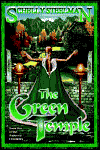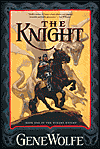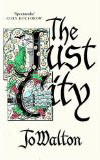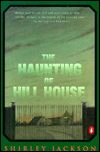
The Green Temple, by Schelly Steelman
Book Review by Susie Hawes
Have you read this book?
"Heroes are made, legends are born"
Glissenda, daughter of the Clan Chief of the Macowans, hides her powers from her domineering and controlling father. Glissenda's father appears to love her, yet his actions belie his words. He dominates her and makes choices that will harm her to further his own needs. In a world dominated by males, the Tor of her people, Glissenda is little more than chattel. She hates this role, but never truly questions it until her friendship develops with Sareih, her brother's bond wife.
Sareih recognizes Glissenda's visions and befriends her, putting aside personal animosities for the sake of her Goddess, and orchestrates Glissenda escape to the sisters of the Green Temple. Glissenda runs from an arranged marriage to travel to The Green Temple. Her passionate, undisciplined nature distresses the quiet Brehara Sisters, and the strength of her power is frightening. She disrupts their peaceful life. Sister Mera's vision predicts that Glissenda will bear the Chosen One, a powerful figure destined to change their world.
In The Green Temple, difficulties arise between Mera and Glissenda due to personality conflicts. Yet they work to overcome their differences, at last finding value in one another.
Mera also finds her role as Sister difficult, as she is not a naturally caring or passive soul. Her devotion to and admiration for an empath named Ayla makes her strive to emulate these qualities. Ayla finds the strength of Glissenda's emotions painful, yet accepts Glissenda. Brona finds difficulty accepting the chaos Glissenda brings to her otherwise orderly life. She responds by taking care not to judge Glissenda too harshly. Throughout all, the sisters question themselves and use their faith to achieve the standards they have set for themselves.
Sister Brona seeks out the ailing former High Priestess, Seyna, to help Glissenda bring her power under control. But Seyna is dying, poisoned by a corrupted High Priestess, Namet, who plans to kill Glissenda and prevent the birth of the Chosen One. Entering the magical realm of visions, a separate dimension visited by the mind and spirit, Glissenda sees the truth.
Her body is in stasis while her spirit and mind are locked in a struggle with the cloaked figure. This has killed seers with far more experience, as the Sister who enters this dimension is always at risk. Frightened for Glissenda, Mera goes in search of her and finds Glissenda fighting with the unknown figure. They join forces to defeat Namet, revealing her treachery.
The sisters struggle to overcome famine, disease and the machinations of a dark enemy. They are aided by the Wizards of the Tower, and Glissenda meets the man she will come to love. Glissenda grows into her powers, preparing herself for the role as mother to the Chosen One.
As the Sisters come to terms with one another, the betrayal of their high priestess marks them, testing their faith. How can they believe in one another when their leader has fallen? How can they trust each other, and the wisdom of their goddess, when the leader of the Brehara Sisterhood was corrupted?
They continue to believe, but there is a touch of fear and caution not seen before the betrayal. Glissenda, at the same time, begins to grow in her powers and becomes more disciplined. She meets a young Wizard and falls in love. Conflicting loyalties confuse her, and she does not reveal this. The Wizard returns her love. Yet, even after consummating their love, these two are bound by the tenants of their faith. Glissenda will not leave the Brehara Sisterhood, and the Wizard will not leave his Tower. They part.
Here the novel shows Glissenda's heritage and how it influences her choices. As she grows heavy with child, Glissenda finds the Sisters expect her to relinquish any male child to the Wizards of the Tower to be raised. Her people would never have considered such a thing. What should she do? Are the expectations of the Sisterhood, her chosen society, more important than her own?
The author explores the rights of the individual, and the expectations a society may place on one to relinquish them, as Glissenda is faced with choices that may determine the course of her life.
This book also examines the role of faith in our lives; man's capacity to trust himself, his friends and his god, in spite of events that test that faith. It contrasts the rights of the individual against the rights of the community, without forcing a conclusion on the reader, provoking thought rather than preaching. The novel portrays these people and their choices with passion, color and depth. The setting and scenery is richly drawn, the action exciting and the logic consistent. I could have wished to see more of the villain and the goddess, who is a distant deity, more an influence and the architect of plans and worlds than a character in the novel.
The author carefully uses duality without stereotyping the denizens of this world. The society of the Tor, patterned after ancient Scotland, is male dominated, while the Green Temple is dominated by women, yet the people in the two societies are different. Women do not dominate nor mistrust their male counterparts in the Green Temple. The Goddess does not seem to have a Dark God counterpart. The main adversary is rather a male Wizard, Herzog, and has no real counterpart in this novel. In later novels I believe that the Chosen One will be cast in this role, but we will have to wait to see.
Dualism is extended to the nature of magic favored by the Sisters and the Wizards. The women of the Brehara Sisterhood prefer a form of magic that is more passive. They have prophetic abilities and seem to favor empathy mental powers. There are male empathics, as well, but the Wizards of the Tower study War Arts, a more aggressive magic, though potentially no more powerful. It is hinted that this is a matter of affinity and choice rather than a strict requirement.
We see the enemy using feminine magic and come to believe that the Chosen One will also be able to do so. Yet the system of magic is not clearly defined in this novel. One is shown actions rather than told how things work, which adds to the strength of the read, yet sometimes leads to a bit of confusion as new elements are introduced. Just keep reading. It evolves into an internal logic that shows itself to be intricate and absorbing.
In this world of complex and diverse cultures we meet two distinct groups, the Sisters and the Tor. Both are fully evolved, with their own eccentricities, consistency and culture. We are shown glimpses of others, and told of even more. It will be interesting to see the rest of the series. The author has obviously done her homework, as the cultures are filled with color, texture, tastes, sounds and scents distinctly their own.
Attitudes vary, yet these people interact, although cautiously. We are treated to a marketplace, a temple, the great stronghold of a Clan, and The Grand Rite of a Goddess. We see students at work and play and a feast in the Tor. We see a society built around the tenants of a faith and a society that has little religion. As Glissenda evolves into a young woman with difficult choices to make, we watch her journey through life and see her personal growth against a backdrop of varied influences.
I loved the touch of having the child conceived during a Grand Rite to the Goddess. Symbolically, she becomes the Goddess. In essence, the Chosen One is the son of a Goddess, yet he is born under a cloud and his purpose is uncertain. He will change the world, but will it be for the betterment of mankind, or its detriment? The choice of villain in The Green Temple reflects this element of uncertainty. Once a powerful Wizard, Herzog desired to unite the men in his society under one rule. The other Wizards rejected this idea so he left, taking his followers, and began to gather others and gain power. His purpose, once supposedly benign, has become destructive. He is an opposite to the Chosen One, I think, and the themes of dualism and the uncertainty of outcome are reflected both characters. Will The Chosen One become another Herzog?
This book sets the stage for the second novel, where the child grows to manhood. It will be released at a later date, and promises to be as filled with danger, intrigue and richly drawn characters as the first. We will see more of the Tor and of the Wizards. I hope the writing is as consistently strong as it was in this novel. I hope there will be more background to the characters, more examination of the forces that shape this world and a tiny bit more local color, but otherwise the author couldn't have done a better job with this story.
Glissenda, daughter of the Clan Chief of the Macowans, hides her powers from her domineering and controlling father. Glissenda's father appears to love her, yet his actions belie his words. He dominates her and makes choices that will harm her to further his own needs. In a world dominated by males, the Tor of her people, Glissenda is little more than chattel. She hates this role, but never truly questions it until her friendship develops with Sareih, her brother's bond wife.
Sareih recognizes Glissenda's visions and befriends her, putting aside personal animosities for the sake of her Goddess, and orchestrates Glissenda escape to the sisters of the Green Temple. Glissenda runs from an arranged marriage to travel to The Green Temple. Her passionate, undisciplined nature distresses the quiet Brehara Sisters, and the strength of her power is frightening. She disrupts their peaceful life. Sister Mera's vision predicts that Glissenda will bear the Chosen One, a powerful figure destined to change their world.
In The Green Temple, difficulties arise between Mera and Glissenda due to personality conflicts. Yet they work to overcome their differences, at last finding value in one another.
Mera also finds her role as Sister difficult, as she is not a naturally caring or passive soul. Her devotion to and admiration for an empath named Ayla makes her strive to emulate these qualities. Ayla finds the strength of Glissenda's emotions painful, yet accepts Glissenda. Brona finds difficulty accepting the chaos Glissenda brings to her otherwise orderly life. She responds by taking care not to judge Glissenda too harshly. Throughout all, the sisters question themselves and use their faith to achieve the standards they have set for themselves.
Sister Brona seeks out the ailing former High Priestess, Seyna, to help Glissenda bring her power under control. But Seyna is dying, poisoned by a corrupted High Priestess, Namet, who plans to kill Glissenda and prevent the birth of the Chosen One. Entering the magical realm of visions, a separate dimension visited by the mind and spirit, Glissenda sees the truth.
Her body is in stasis while her spirit and mind are locked in a struggle with the cloaked figure. This has killed seers with far more experience, as the Sister who enters this dimension is always at risk. Frightened for Glissenda, Mera goes in search of her and finds Glissenda fighting with the unknown figure. They join forces to defeat Namet, revealing her treachery.
The sisters struggle to overcome famine, disease and the machinations of a dark enemy. They are aided by the Wizards of the Tower, and Glissenda meets the man she will come to love. Glissenda grows into her powers, preparing herself for the role as mother to the Chosen One.
As the Sisters come to terms with one another, the betrayal of their high priestess marks them, testing their faith. How can they believe in one another when their leader has fallen? How can they trust each other, and the wisdom of their goddess, when the leader of the Brehara Sisterhood was corrupted?
They continue to believe, but there is a touch of fear and caution not seen before the betrayal. Glissenda, at the same time, begins to grow in her powers and becomes more disciplined. She meets a young Wizard and falls in love. Conflicting loyalties confuse her, and she does not reveal this. The Wizard returns her love. Yet, even after consummating their love, these two are bound by the tenants of their faith. Glissenda will not leave the Brehara Sisterhood, and the Wizard will not leave his Tower. They part.
Here the novel shows Glissenda's heritage and how it influences her choices. As she grows heavy with child, Glissenda finds the Sisters expect her to relinquish any male child to the Wizards of the Tower to be raised. Her people would never have considered such a thing. What should she do? Are the expectations of the Sisterhood, her chosen society, more important than her own?
The author explores the rights of the individual, and the expectations a society may place on one to relinquish them, as Glissenda is faced with choices that may determine the course of her life.
This book also examines the role of faith in our lives; man's capacity to trust himself, his friends and his god, in spite of events that test that faith. It contrasts the rights of the individual against the rights of the community, without forcing a conclusion on the reader, provoking thought rather than preaching. The novel portrays these people and their choices with passion, color and depth. The setting and scenery is richly drawn, the action exciting and the logic consistent. I could have wished to see more of the villain and the goddess, who is a distant deity, more an influence and the architect of plans and worlds than a character in the novel.
The author carefully uses duality without stereotyping the denizens of this world. The society of the Tor, patterned after ancient Scotland, is male dominated, while the Green Temple is dominated by women, yet the people in the two societies are different. Women do not dominate nor mistrust their male counterparts in the Green Temple. The Goddess does not seem to have a Dark God counterpart. The main adversary is rather a male Wizard, Herzog, and has no real counterpart in this novel. In later novels I believe that the Chosen One will be cast in this role, but we will have to wait to see.
Dualism is extended to the nature of magic favored by the Sisters and the Wizards. The women of the Brehara Sisterhood prefer a form of magic that is more passive. They have prophetic abilities and seem to favor empathy mental powers. There are male empathics, as well, but the Wizards of the Tower study War Arts, a more aggressive magic, though potentially no more powerful. It is hinted that this is a matter of affinity and choice rather than a strict requirement.
We see the enemy using feminine magic and come to believe that the Chosen One will also be able to do so. Yet the system of magic is not clearly defined in this novel. One is shown actions rather than told how things work, which adds to the strength of the read, yet sometimes leads to a bit of confusion as new elements are introduced. Just keep reading. It evolves into an internal logic that shows itself to be intricate and absorbing.
In this world of complex and diverse cultures we meet two distinct groups, the Sisters and the Tor. Both are fully evolved, with their own eccentricities, consistency and culture. We are shown glimpses of others, and told of even more. It will be interesting to see the rest of the series. The author has obviously done her homework, as the cultures are filled with color, texture, tastes, sounds and scents distinctly their own.
Attitudes vary, yet these people interact, although cautiously. We are treated to a marketplace, a temple, the great stronghold of a Clan, and The Grand Rite of a Goddess. We see students at work and play and a feast in the Tor. We see a society built around the tenants of a faith and a society that has little religion. As Glissenda evolves into a young woman with difficult choices to make, we watch her journey through life and see her personal growth against a backdrop of varied influences.
I loved the touch of having the child conceived during a Grand Rite to the Goddess. Symbolically, she becomes the Goddess. In essence, the Chosen One is the son of a Goddess, yet he is born under a cloud and his purpose is uncertain. He will change the world, but will it be for the betterment of mankind, or its detriment? The choice of villain in The Green Temple reflects this element of uncertainty. Once a powerful Wizard, Herzog desired to unite the men in his society under one rule. The other Wizards rejected this idea so he left, taking his followers, and began to gather others and gain power. His purpose, once supposedly benign, has become destructive. He is an opposite to the Chosen One, I think, and the themes of dualism and the uncertainty of outcome are reflected both characters. Will The Chosen One become another Herzog?
This book sets the stage for the second novel, where the child grows to manhood. It will be released at a later date, and promises to be as filled with danger, intrigue and richly drawn characters as the first. We will see more of the Tor and of the Wizards. I hope the writing is as consistently strong as it was in this novel. I hope there will be more background to the characters, more examination of the forces that shape this world and a tiny bit more local color, but otherwise the author couldn't have done a better job with this story.
|
Click here to buy The Green Temple, by Schelly Steelman on Amazon
|
The Green Temple, by Schelly Steelman on Amazon

| More Books You Might Like |
Comment on The Green Temple, by Schelly Steelman




